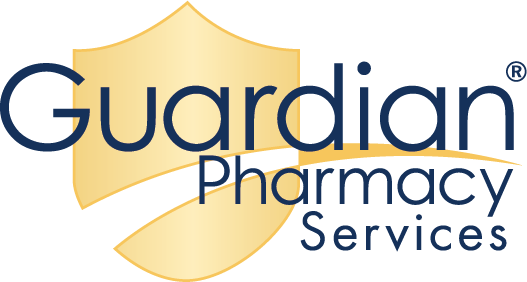Mitigating Risks in Assisted Living: A Proactive Approach to Medication Safety
Elevating Medication Safety in Assisted Living Communities
Ensuring safety, improving outcomes, and mitigating risks are constant priorities for assisted living (AL) providers, especially as they navigate the complexities of serving an aging population with increasingly diverse needs. Addressing these evolving demands is further complicated amidst challenges such as staffing shortages, regulatory changes, and increasing resident acuity. Collaborating with healthcare partners, including the community’s long-term care (LTC) pharmacy partner, provides AL communities with the expertise and resources needed to navigate this complex landscape while minimizing risks.
With Medicare’s push for 100% participation in value-based care (VBC) by 2030, AL communities have added incentive to adopt proactive strategies to reduce hospitalizations and improve resident health outcomes. LTC pharmacy partnerships offer solutions to achieve these goals by focusing on critical areas like medication safety and fall prevention.
Addressing Medication Safety and Reducing Risks
Older adults are particularly vulnerable to medication-related complications due to physiological changes such as reduced muscle mass, cognitive decline, and impaired kidney function. By focusing on three core areas, AL communities can enhance resident well-being and reduce risks:
1. Reducing Polypharmacy
Polypharmacy, defined as taking five or more medications, can either benefit or harm residents, depending on the appropriateness of the drug regimen. While some residents may require multiple medications for chronic conditions, unnecessary or duplicative prescriptions increase the risk of adverse side effects, hospitalizations, and falls.
LTC pharmacy partners play a key role in identifying and addressing inappropriate polypharmacy. By reviewing resident health records, they can simplify medication regimens, ensure accurate drug reconciliations post-hospitalization, and recommend safer alternatives. This partnership reduces health risks, promotes adherence, and prevents costly hospital visits.
2. Preventing Medication Errors
An estimated 800,000 preventable medication-related injuries occur annually in U.S. long-term care (LTC) facilities, according to the Institute of Medicine. These errors, often resulting from human mistakes, can lead to adverse drug events, emergency room visits, and other negative outcomes.
To address this, LTC pharmacies collaborate closely with AL communities to standardize critical medication processes, including ordering, storage, and administration. This collaboration leverages training, advanced technology, and streamlined procedures to minimize errors.
Training staff on the “7 Rights” of medication administration—right patient, drug, dose, time, route, reason, and documentation—is foundational to reducing mistakes. LTC pharmacy partners provide essential education on managing high-risk medications and offer actionable insights through analytics, such as medication use trends for antibiotics, opioids, and psychotropics.
Advanced technologies further strengthen medication safety. Pharmacy integration with electronic health records (EHR) and electronic medication administration records (eMAR) enhances accuracy and streamlines workflows, significantly reducing the potential for errors. Real-time access to pharmacy data, paired with open communication channels, ensures seamless coordination between pharmacy and community staff. Tools like secure pharmacy web portals and messaging apps enable staff to clarify medication orders and address discrepancies before medication passes, reducing risks and improving care delivery.
3. Reducing Fall Risk
Falls are a significant concern in AL communities, often resulting in injuries, hospitalizations, and even fatalities. It’s crucial to recognize medications’ role as a leading cause of falls among older adults. Blood pressure drugs, opioids, psychotropics, and sedatives contribute to heightened fall risks among older adults.
LTC pharmacists play a key role in mitigating these risks by tailoring medication regimens to the unique needs of aging residents. Adjusting dosages and carefully monitoring drug interactions reduces side effects like low blood pressure, drowsiness and confusion, which are common contributors to falls. This proactive approach not only enhances resident safety but also aligns with VBC goals by lowering hospitalization rates
A Partnership for Long-Term Success
Partnering with an LTC pharmacy delivers dual benefits: improved resident health outcomes and reduced hospitalization rates. These outcomes demonstrate a commitment to VBC principles, potentially unlocking financial incentives from payors. Additionally, the insights and clinical expertise provided by LTC pharmacists support AL staff in delivering high-quality care while reducing legal and operational risks. For example, Guardian’s proprietary Clinical Intervention program, a component of the GuardianShield suite of services, delivers actionable insights into the clinical decisions and interventions LTC pharmacists make each day to mitigate the risk for medication harm and enhance resident outcomes.
Looking Ahead
As the AL industry evolves to meet the needs of a growing senior population, adopting proactive, preventative care models is critical. By collaborating with healthcare partners, including their LTC pharmacy partner, AL communities can implement effective safety measures, improve resident well-being, and position themselves for long-term success in an ever-changing healthcare landscape.

Lisa Lassiter, RPh
Director, Clinical Services
Guardian Pharmacy of South Georgia
With over 20 years of experience in the long-term care industry, and a strong belief for treating all residents with the dignity and respect they deserve as they age, Lisa serves as the Director of Clinical Services for Guardian Pharmacy of South Georgia. She is a graduate and proud alumni of the University of Georgia College of Pharmacy and a Past President of the Assisted Living Association of Georgia. She is a member of the Georgia Senior Living Association and the American Society of Consultant Pharmacists.








